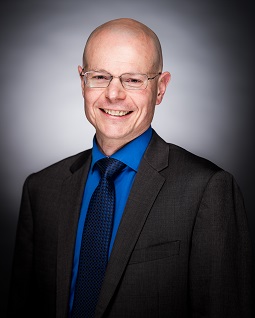Michel Van Bellinghen – a newly elected BEREC Chair for 2021
03 October 2019
 Today, on 3 October 2019, the BEREC Board of Regulators elected the BEREC Chair for 2021 Michel Van Bellinghen – the Chairman of the Council of Belgian Institute for Postal Services and Telecommunications (BIPT).
Today, on 3 October 2019, the BEREC Board of Regulators elected the BEREC Chair for 2021 Michel Van Bellinghen – the Chairman of the Council of Belgian Institute for Postal Services and Telecommunications (BIPT).
Michel Van Bellinghen became Chairman of the BIPT Council in January 2017, having been a Member of the Council twice (from 2003-2009 and then again in 2013). From 1999 to 2003 he held the position of expert at the private office of Rik Daems, who was the Federal Telecommunications Minister at the time, and afterwards took up the function of Assistant Head of the Private Office. After his first tenure as Member of the BIPT Council (2003-2009) he supervised the legal department until being elected as a Member again in 2013.
In 2020, Michel Van Bellinghen will serve as a Vice-Chair and the incoming BEREC Chair 2021. The other elected Vice-Chairs are Monika Karas (NMHH, Hungary) and Tonko Obuljen (HAKOM, Croatia) together with Jeremy Godfrey (ComReg, Ireland) as the outgoing BEREC Chair. They will support Dan Sjöblom (PTS, Sweden), who will be the BEREC Chair 2020. The BEREC Chair and Vice-Chairs together with the representative of participants without voting rights - Sasho Dimitrijoski (AEC, The Republic of North Macedonia) will compose the Mini-Board.
The Board of Regulators appoints its Chair and Vice-Chairs from among its members. The term of office of the Chair and of the Vice-Chairs is one year. Before serving her/his term as a Chair for one year, the Chair has firstly to serve one year as a Vice-Chair. For ensuring continuity of BERECs' work, the Chair has to serve as a Vice-Chair for the year following her/his term as the Chair. Every year the Board of Regulators appoints the Chair for the year subsequent to the following year and the Vice-Chairs for the following year.
For the first time in its history, the BEREC Board of Regulators decided to change the tradition of electing its new Chair and Vice-Chairs at the final ordinary Plenary meeting of the year in December. Instead, it will be taking place at the 3rd ordinary Plenary meeting in October.
The main aim of this change is to improve the development process of the annual Work Programme, giving more time for the necessary assessments, preparations, stakeholder involvement and drafting.

 Tweet
Tweet Share
Share